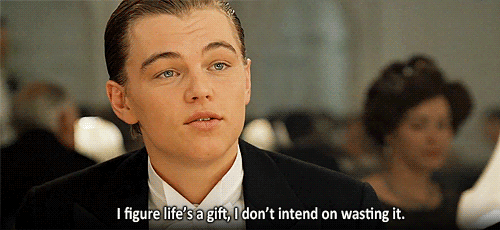Writing 101 as Inspired by Improv and Life
By Naseem Hrab
I’m hoping the tips in this post will be really helpful to beginner writers—people who have always wanted to write but just don’t sit down to write consistently for whatever reason. People who don’t know the steps they need to take to start writing a story, or people who are worried that whatever they write is poo.
These tips are really broad and don’t deal with the nitty-gritty of storytelling, like how to create characters that audiences will care about and how to make a wholly satisfying conclusion—I’ll talk about some of those things in later posts.
As I’ve said in my earlier posts, improv is the one thing that has really helped me learn how to write a story, so many of my tips are inspired by the advice I received from my incredible instructors and classmates at Toronto’s Bad Dog Theatre and The Second City.
One more thing: I always feel that trying to explain how to write is like trying to explain why a joke is funny—it’s hard to do and ultimately ruins everything, ruiner.
Before you start writing: have something to say, feel strongly about that thing, and think long and hard about how to tell your story in a way that feels original.
This is about three steps in one, but what I’m asking you to do is think. Really think about your story idea for days or weeks. Make time to think—don’t just think about your story passively once every month. SCHEDULE TIME TO THINK.
Think about what you want to say, or what story you want to tell. Think about all the emotions you have towards that thing you want to say or that story you want to tell. Think about who your characters are. Do they remind you of yourself? Of someone you know? What would your characters do in the situation you’ve put them in? How would they react? And then list all the books that have already been published that do exactly what you’re setting out to do and really think about how you can differentiate your story from them.
Do all this thinking with a few little scraps of paper next to you. Don’t use that fancy journal you paid $30 for—you’re going to be too precious about what goes into that journal. “Only the good ideas!!!” NO. Forget about the good ideas—you don’t have any yet. We’re just working you up to being able to write your vomit draft. At this stage, you should be using a free pad of paper that a real estate agent mailed to you.
Case Study: When I was writing Ira Crumb Makes a Pretty Good Friend, I wanted to tell a story about a kid who basically does EVERYTHING he can to make a friend except for simply saying, “Hey! I’m Ira. Wanna play?” So, I had something I wanted to say: it’s really hard to make friends when you’re worried about making friends. Why did I want to tell this story? Because that’s sooo me. And guess what? I feel strongly about me. Is the story original? That’s debatable, but I think it’s original because I don’t think that there are enough stories about little boys feeling vulnerable and anxious and struggling to make friends. And there are definitely not enough books with talking sandwiches.
Yes, and … Yourself
Your CanLit News
Subscribe to Open Book’s newsletter to get local book events, literary content, writing tips, and more in your inbox
After you’ve thought long and hard about your story, you’re ready to start writing it. But once you actually start writing, you’ll find that NONE OF YOUR IDEAS WORK ANYMORE. They just fizzle up and die once they hit the page (or screen). And you quit, right? Who wanted to write that dumb book anyway? Not me—I don’t have dreams anymore.
In improv, one of the most well-known tenants is “YES, AND ...” Basically, you’re supposed to agree with whatever your scene partner says and add something new to the equation. Suspend reality, suspend judgement, stop hesitating and overthinking, and just play. (So, the opposite of what I told just told you to do.)
In other words, JUST WRITE. This is your vomit draft, remember? At this stage, you just need to KEEP WRITING. Put a sentence down. And don’t delete it. And then add another sentence to that sentence. And then keep going. Is what you’ve written so far any good? Probably not. Is that okay? YES. Now keep going! YES, AND … YOURSELF.
Finish It
So, you’re writing out pages and pages of stuff. You’re ignoring your delete key like some kind of delete-key-ignoring magician. And you’ve stopped really knowing what your story is about and you’re starting to worry that your old friend Naseem has led you down the wrong path. And you’re right—I have led you down the wrong path, but I’ve done it with good reason: YOU NEEEED TO COMPLETE YOUR VOMIT DRAFT.
How many times have you started writing something, stopped and forgotten about it? How many Word files filled with really promising beginnings are you storing in My Documents? If you have even one file like this … it’s too many. The most important part of this process is to complete your vomit draft.
If you don’t finish your vomit draft, your dreams will just wither away and you’ll be that person who started writing a book once five years ago, but y’know, got busy or whatever. WHAT HAVE I DONE WITH MY LIFE?
On that note, in my next post I’ll give you some tips for revising your vomit draft. Whee!
The views expressed in the Writer-in-Residence blogs are those held by the authors and do not necessarily reflect the views of Open Book.
Naseem Hrab is a writer, a storyteller and a pretty good friend. Her comedy writing has appeared on McSweeney's Internet Tendency and The Rumpus. Naseem worked as a librarian for a time and now works in children's publishing. She lives in Toronto, Ontario.






